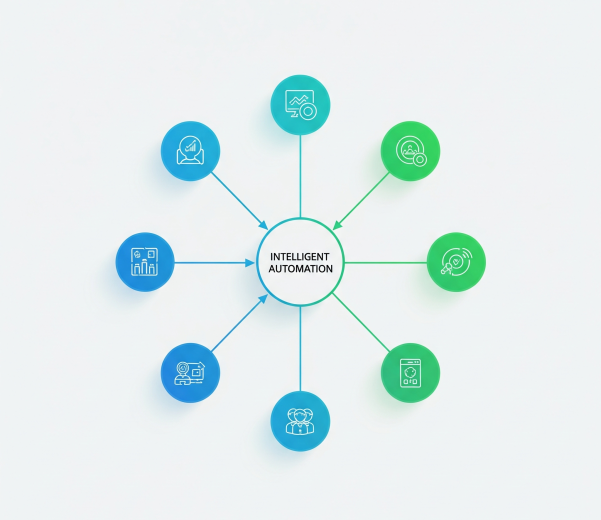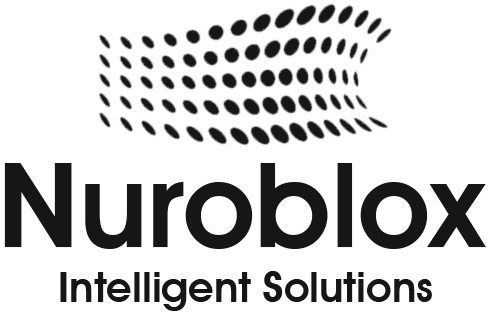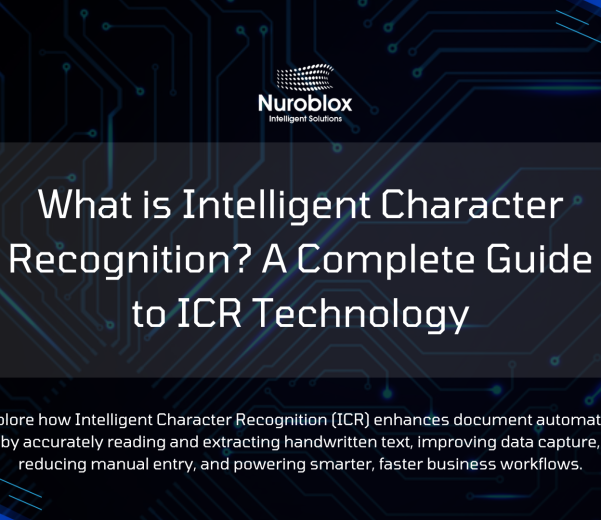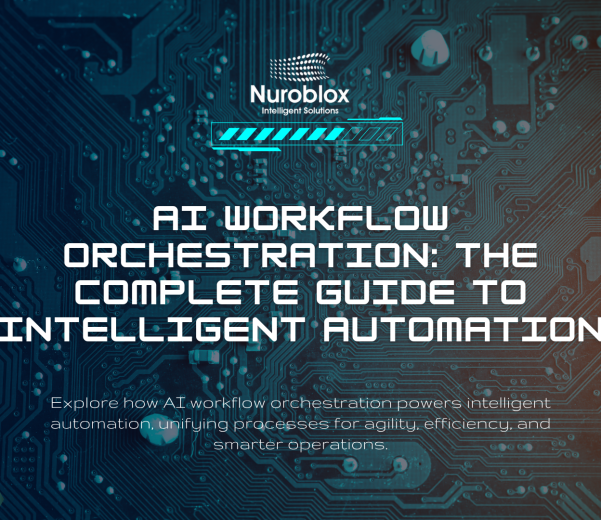Intelligent automation
- Home
- Intelligent automation
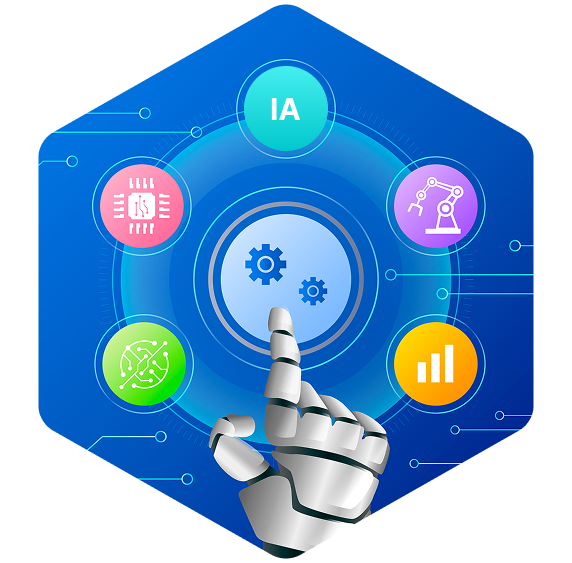
// ABOUT INTELLIGENT AUTOMATION
Intelligent Automation
Unlock greater automation potential by integrating AI and machine learning to handle dynamic, data-driven, and decision-heavy business processes. Going beyond rule-based tasks to enable smarter, more scalable operations.









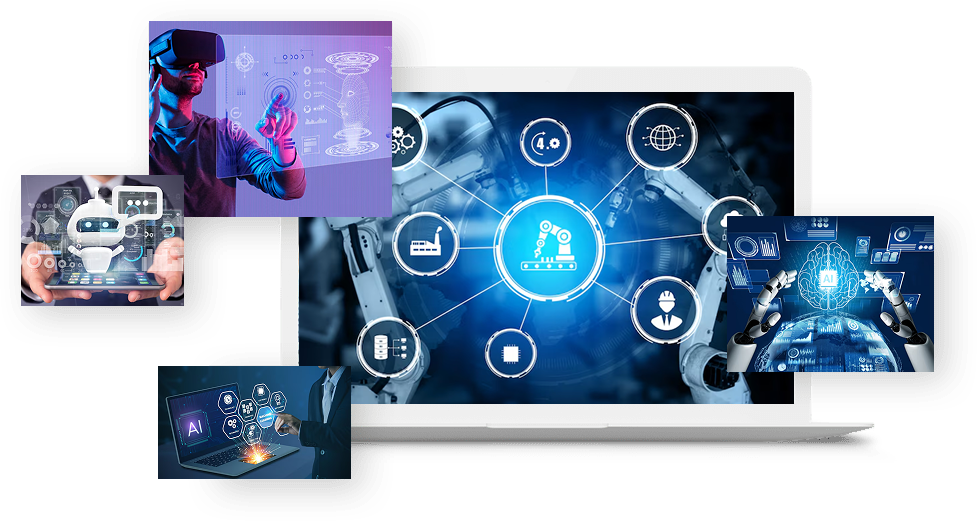
What is Intelligent Automation?
Intelligent automation is a software technology that combines artificial intelligence (AI) and machine learning (ML) with traditional automation to handle more complex workflows. It can be viewed as an evolution of Robotic Process Automation (RPA), designed to significantly expand its capabilities. While RPA has traditionally been used to automate simple, rule-based tasks such as data entry or system updates. Intelligent automation pushes those boundaries.
For example, imagine a business process that spans multiple internal systems and third-party applications, and includes steps like reading and interpreting documents. Traditional RPA might automate individual parts of that process, but it would fall short in managing the entire workflow end to end. With the integration of AI, intelligent automation can understand documents, analyze unstructured data, and make decisions. Allowing you to automate the entire process, even the steps that once required human judgment.
Benefits of Intelligent Automation
Increased Productivity
Automates repetitive tasks across systems, freeing employees to focus on innovation and higher-impact activities.
Cost Savings
Reduces time and resources needed for operations, leading to lower costs and improved ROI as automation scales.
Faster Execution
Speeds up task completion and workflows, helping businesses respond quickly and meet tight deadlines.
Faster Execution
Speeds up task completion and workflows, helping businesses respond quickly and meet tight deadlines.
How Intelligent Automation Works
Intelligent automation supports the entire automation lifecycle – from identifying opportunities to managing live workflows. It starts with discovery, where AI-powered tools like process and task mining help pinpoint high-impact areas ripe for automation and ongoing optimization.
Next comes automation, where identified processes are transformed into workflows. Low-code platforms make it possible for both technical and non-technical users to build automations, while AI testing ensures everything runs smoothly before deployment.
Finally, in the operate phase, automations are implemented across teams and systems. These solutions scale with your business, allowing continuous improvements while freeing up your teams to focus on strategic, human-centered work.

Components of Intelligent Automation
Intelligent automation is powered by three core components-Artificial Intelligence (AI), Robotic Process Automation (RPA), and Business Process Management (BPM). Together, they create intelligent, end-to-end automation solutions.
- AI and ML
- RPA
- BPM
Artificial Intelligence (AI) and Machine Learning (ML)
enable systems to simulate human intelligence by learning from data, identifying patterns, and making decisions. They help automate tasks like document understanding, unstructured data analysis, and predictive insights. Making automation more adaptive and context-aware.
Robotic Process Automation (RPA) uses software bots to replicate human actions in digital systems such as clicking, typing, and navigating interfaces. It automates structured, rule-based tasks and, when combined with AI, extends to more complex and variable processes.
Business Process Management (BPM) focuses on analyzing, modeling, and optimizing workflows across systems and departments. It provides visibility into how processes operate and helps prioritize automation opportunities to improve efficiency, agility, and compliance.
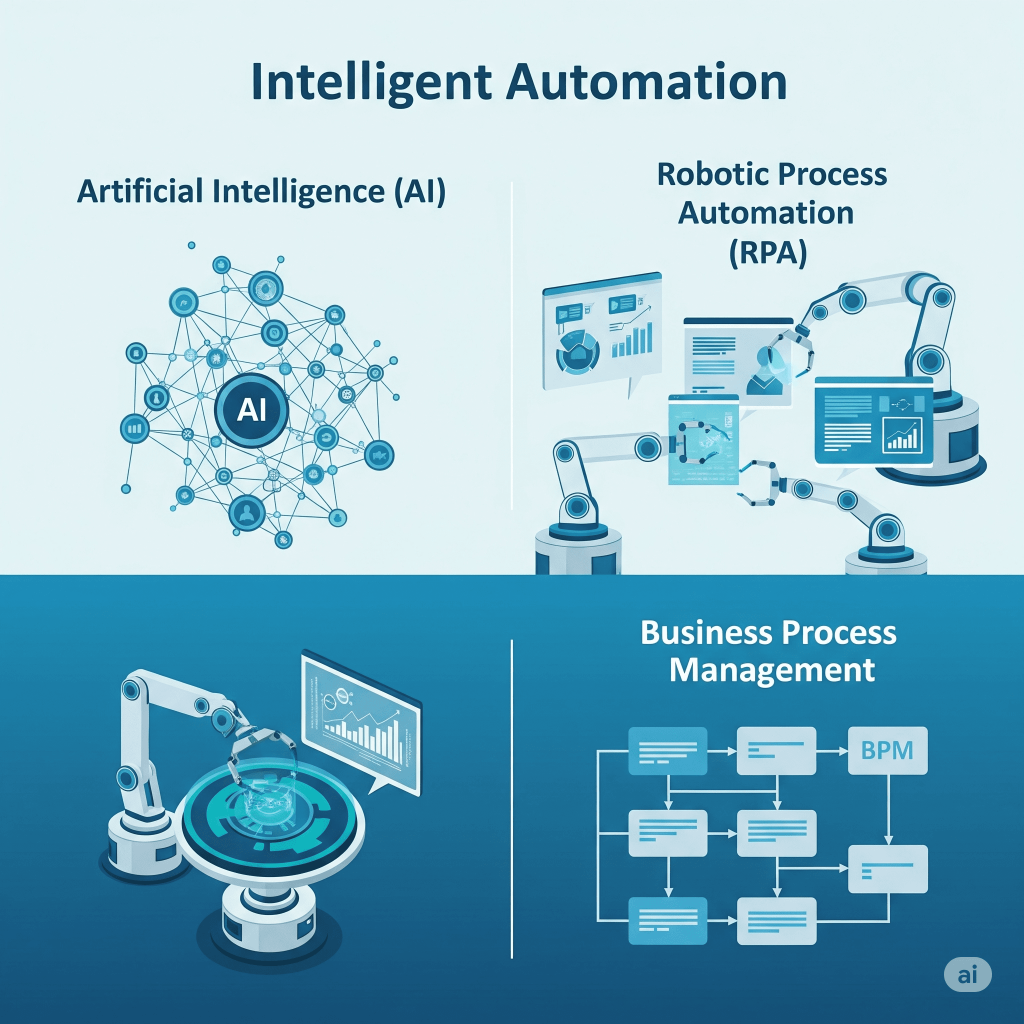
We’re Here to Assist You and Address
All Your Questions Anytime!
Business Use Cases for Intelligent Automation
Intelligent automation brings powerful efficiency gains across industries and teams. From compliance and claims to procurement, it simplifies complex operations, reduces manual effort, and enables faster, smarter decision-making. Below are three impactful ways organizations are putting it to work-
Compliance Monitoring
Claims Processing
Procurement Automation

Regulatory Compliance
Intelligent automation continuously monitors regulatory changes and business processes, using AI to detect and flag non-compliance in real time. Helping organizations stay compliant, reduce risk, and remain audit-ready.

Claims Automation
Intelligent automation leverages document understanding and rule-based workflows to quickly assess, validate, and approve insurance or medical claims. Reducing manual effort, errors, and processing times.

Smart Procurement
Intelligent automation enhances procurement by automating routine tasks like purchase requests, vendor comparisons, and contract approvals. Speeding up sourcing, improving transparency, and cutting operational delays.
How You Can Benefit from Intelligent Automation
Now that you know what intelligent automation can do, explore how others in our industry or departments are using it to improve efficiency.
As automation gets smarter, forward-thinking businesses are transforming operations and driving better outcomes with intelligent automation.
